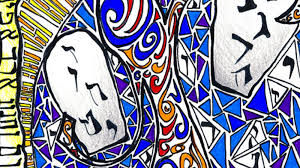D'var Torah for פָּרָשַׁת תּוֹלְדוֹת / Parashat Toldot 5786 22 November 2025 / 2 Kislev 5786
- Rabbi Stephen Epstein

- Nov 11, 2025
- 3 min read
Parashat Toldot 5786 / פָּרָשַׁת תּוֹלְדוֹת
22 November 2025 / 2 Kislev 5786

Parashat Toldot is the 6th weekly Torah portion in the annual Jewish cycle of Torah reading.
Torah Portion: Genesis 25:19-28:9
Toldot (“Generations”) opens with the births of Isaac and Rebecca’s twins, Jacob and Esau. Esau sells his birthright to Jacob in exchange for soup. Isaac and Rebecca travel to Gerar, where Isaac makes a peace treaty with King Abimelech. Isaac gives Jacob the blessing meant for Esau, and Jacob runs away to his uncle Laban. [1]
Triennial year 1
Haftarah: Malachi 1:1-2:7 · 21 p’sukim p. 102 - 105
Commentary and Divrei Torah Sefaria OU Torah Rabbi Sacks z”l Jewish Theological Seminary
Toldot is a fascinating parashat because it introduces a new concept: a woman prophetess. We have identified Sara, Rebecca, Rachel and Leah as our matriarchs, yes. Some more progressive prayer books even include them in the first blessing of the tefillah, the Amidah to honor their various roles in our heritage.
In this particular parashah, Rebecca is shown to have the role as a prophet. Many societies have relegated women to a secondary, subservient role. Not so in Judaism. We honor women. Women are matriarchs, prophets and judges.
Here is the first time a woman is seen as a prophet. Rebecca is gestating fraternal twins who seem to be fighting in her womb. So painful is this that she seeks Hashem’s counsel. Hashem tells her that she will give birth to two nations and one will serve the other.
Some believe that the arrangement of the words in Torah indicate that she did not talk directly to G-d but through an intermediary. You decide.
Parashá Toldot 5786 / פָּרָשַׁת תּוֹלְדוֹת
22 de noviembre de 2025 / 2 Kislev 5786
La Parashá Toldot es la sexta porción semanal de la Torá en el ciclo anual judío de lectura de la Torá.
Porción de la Torá: Génesis 25:19-28:9
Toldot (“Generaciones”) comienza con el nacimiento de los mellizos de Isaac y Rebeca, Jacob y Esaú. Esaú vende su primogenitura a Jacob a cambio de sopa. Isaac y Rebeca viajan a Gerar, donde Isaac firma un tratado de paz con el rey Abimelec. Isaac le da a Jacob la bendición destinada a Esaú, y Jacob huye a casa de su tío Labán. [1] Año trienal 1
1: 25:19-22 · 4 versículos p. 93
2: 25:23-26 · 4 versículos p. 93 - 94
3: 25:27-34 · 8 versículos p. 94
4: 26:1-5 · 5 versículos p. 94 - 95
5: 26:6-12 · 7 versículos p. 95 - 96
6: 26:13-16 · 4 versículos p. 96
7: 26:17-22 · 6 versículos p. 96
maf: 28:7-9 · 3 versículos p. 101
Haftará: Malaquías 1:1-2:7 · 21 versículos p. 102 - 105
Comentario y Divrei Torah Sefaria OU Torah Rabino Sacks z”l Seminario Teológico Judío
Toldot es una parashá fascinante porque introduce un nuevo concepto: una mujer profetisa. Hemos identificado a Sara, Rebeca, Raquel y Lea como nuestras matriarcas, sí. Algunos libros de oraciones más progresistas incluso las incluyen en la primera bendición de la tefilá, la Amidá, para honrar sus diversos roles en nuestra herencia.
En esta parashá en particular, se muestra a Rebeca con el rol de profetisa. Muchas sociedades han relegado a las mujeres a un papel secundario y subordinado. No ocurre así en el judaísmo. Honramos a las mujeres. Las mujeres son matriarcas, profetisas y juezas.
Aquí es donde, por primera vez, se ve a una mujer como profetisa. Rebeca está gestando gemelos fraternos que parecen pelear en su vientre. El dolor es tan intenso que busca el consejo de Hashem. Hashem le dice que dará a luz a dos naciones y una servirá a la otra. Otros.
Algunos creen que la disposición de las palabras en la Torá indica que ella no habló directamente con Dios, sino a través de un intermediario. Usted decide.





Comments